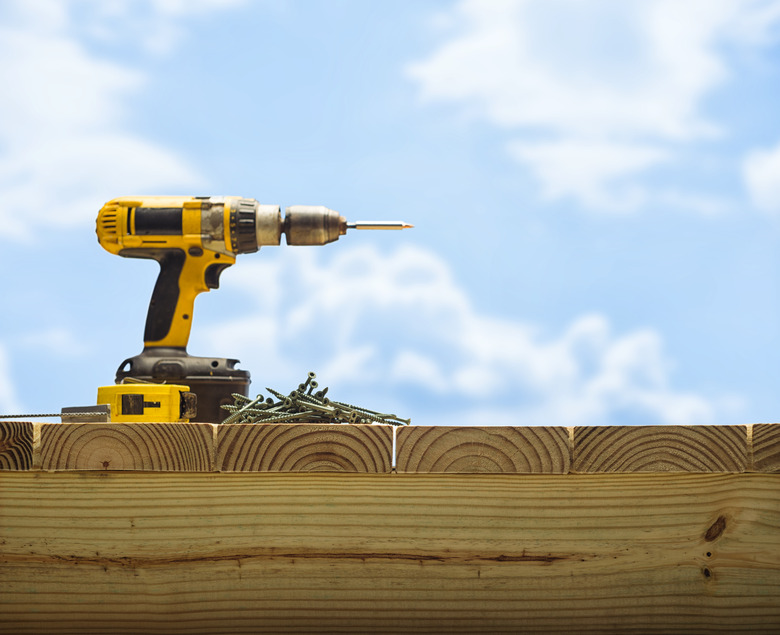What Screws Do You Use With Treated Wood?
We may receive a commission on purchases made from links.
Whether you are constructing a deck or another outdoor wooden structure, building with pressure-treated wood is key for structural integrity and overall longevity. In a similar vein, joining your structure with screws for pressure-treated wood is equally as important to avoid unwanted corrosion. Learn why using fasteners for pressure-treated wood is crucial for successful outdoor builds.
What Is Pressure-Treated Wood?
What Is Pressure-Treated Wood?
Pressure-treated wood is preserved by alkaline copper quaternary or copper azole that protects it from corrosive elements. Using this type of chemically protected wood is ideal in situations where the wooden surface or structure will see regular moisture exposure. While pressure-treated wood is absolutely wood, it does require particular types of fasteners that won't react adversely to its chemical properties.
The chemicals that protect pressure-treated wood from rot can be reactive and caustic to certain types of fasteners. Therefore, when selecting screws for pressure-treated wood projects, it's important to choose fasteners that can withstand not only substantial structural loads and inclement weather but also the corrosive properties of the chemicals on the treated wood.
Identifying Screws for Pressure-Treated Wood
Identifying Screws for Pressure-Treated Wood
Screws made of silicon bronze are the cream of the crop for use on pressure-treated wood. Wood rot is not common around silicon bronze screws, and these fasteners also resist other forms of corrosion. However, silicon bronze screws are quite expensive, so they are best used sparingly.
Most outdoor projects using pressure-treated wood will call for stainless steel screws. These screws come in a variety of grades, but 304 and 305 are the most commonly suggested grades. While both grades are typically great for projects in general, 305s are slightly upgraded in terms of their protection against corrosion. If you live in an area that sees particularly intense weather patterns or by the ocean where salt spray is common, investing in slightly more expensive 316-grade stainless steel screws may be worth it.
Another great pick for joining pressure-treated wood is coated steel screws. The best coated screws are generally those covered in either zinc or ceramic. If you're using these, be aware that while a thicker coating is more durable, too thick a coating can clog threads, making it really difficult to drive in your fasteners. You also want to avoid investing in purely galvanized screws because pressure-treated wood can harm their integrity. Instead, opt for galvanized screws with an added polymer coating.
No matter which type of fastener you choose, when working outdoors, it's always best to join your projects with screws rather than nails. This is primarily because the ridges on screws grip the wood better and withstand unwanted corrosion over time. Additionally, when installing decking, you want to insert screws a minimum of an inch into the frame material for the best fit and leverage.
What's the Difference Between Wood Screws and Deck Screws?
What's the Difference Between Wood Screws and Deck Screws?
There are so many different types of screws available these days, and each type is designed for a unique purpose. Wood screws and deck screws are no different. You generally reach for a wood screw when you are layering boards of wood together. These types of screws aren't necessarily designed to withstand corrosive outdoor elements. However, deck screws are. Deck screws are designed to be used on the outside of your outdoor projects, as they are much better at withstanding inclement weather and the corrosive qualities of wood preservatives.
